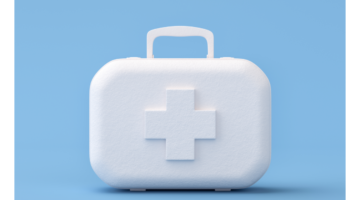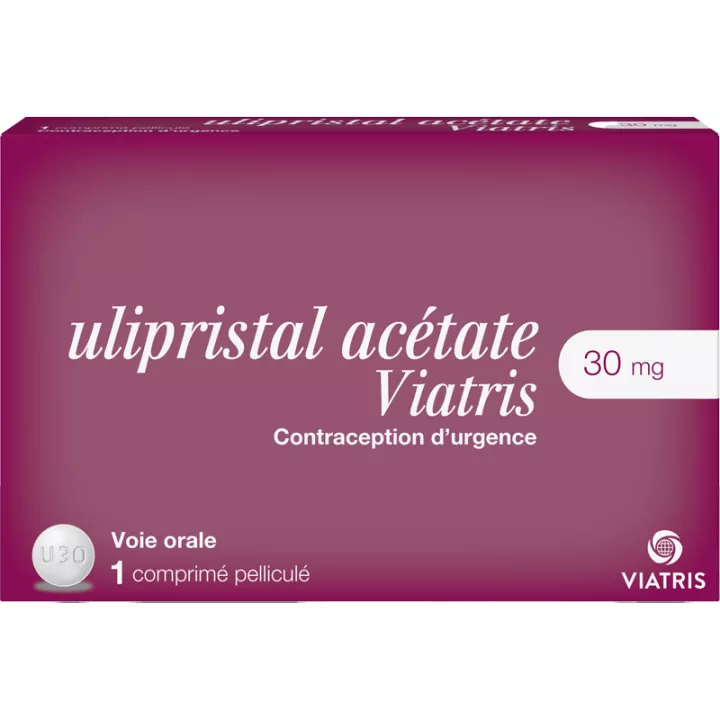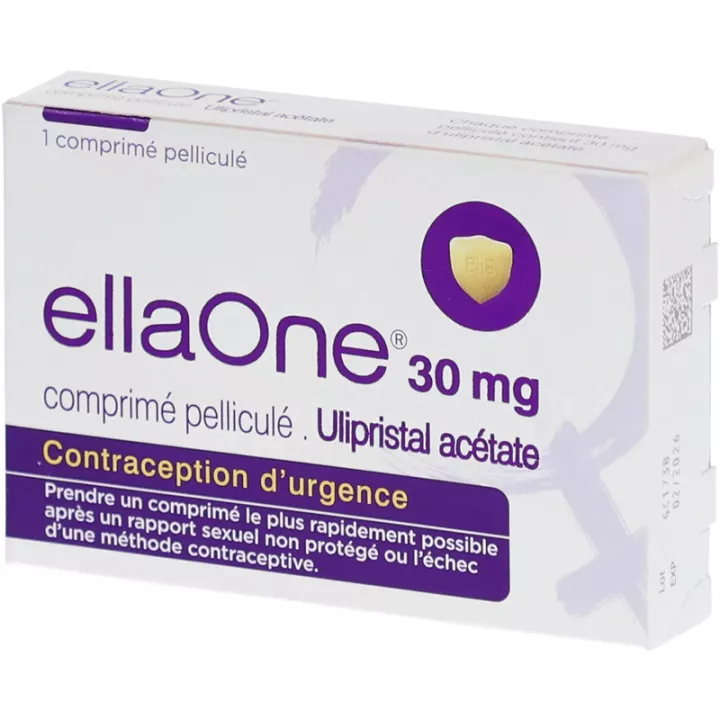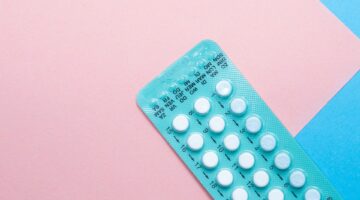NOTICE
ANSM - Last updated: 26/06/2017
Name of the medicinal product
NORLEVO ® 1.5 mg tablet
levonorgestrel
framed
Please read this leaflet carefully before you start taking this medicine because it contains important information for you.
You should always take this medication exactly as prescribed in this leaflet or by your doctor, pharmacist or family planning center.
· Keep this leaflet. You might need to read it again.
· Contact your doctor, pharmacist or family planning center for advice or information.
· If you experience any of the side effects, talk to your doctor or pharmacist. This also applies to any side effects not mentioned in this leaflet. See section 4.
What is in this leaflet?
1. What is NORLEVO 1.5 mg tablet and when it is used?
2. What information should I take before taking NORLEVO 1.5 mg tablet?
3. How to take NORLEVO 1.5 mg tablet?
4. What are the possible side effects?
5. How to store NORLEVO 1.5 mg tablet?
6. Package contents and other information.
1. WHAT NORLEVO 1.5 mg tablet is AND WHAT IT IS USED FOR?
NORLEVO is an oral emergency contraception.
What is emergency contraception?
Emergency contraception is a catch-up method that aims to prevent pregnancy after unprotected intercourse or failure of the contraceptive method.
When to use this emergency contraception?
This emergency contraception should be used as soon as possible, preferably within 12 hours and at the latest within 72 hours (3 days), after unprotected intercourse, or in case of contraceptive failure . It is more effective if you take it as soon as possible after unprotected intercourse. NORLEVO can prevent a pregnancy only if you take it within 72 hours after unprotected intercourse. It does not work if you are already pregnant. If you have unprotected sex after taking NORLEVO, NORLEVO will not prevent pregnancy.
NORLEVO has been shown to prevent 52% to 85% of expected pregnancies.
If you suspect you are pregnant for any of the following reasons:
· if you have had sex without a contraceptive method;
· if you forgot to take your birth control pill in time;
· if your partner's condom has broken, slipped or fallen;
· if you are concerned that your IUD has been expelled;
· if your contraceptive cape or diaphragm has moved or you removed it too soon;
· if you fear a failure of the method of interrupted sex or the method of temperatures;
· in case of rape.
NORLEVO works by preventing your ovaries from releasing an egg. It can not prevent a fertilized egg from attaching itself to the uterus.
This tablet is used only as an emergency contraception method; it is not a regular method of contraception because it is less effective than the "normal" contraceptive pill ("the pill").
NORLEVO is not indicated before the first menstrual bleeding (puberty).
2. BEFORE YOU TAKE NORLEVO 1.5 mg tablet?
Do not take NORLEVO 1.5 mg tablets in the following cases:
· if you are allergic (hypersensitive) to levonorgestrel or any of the other ingredients of this medication mentioned in section 6.
Warnings and Precautions
The use of NORLEVO is not recommended in the following cases:
· if you have had an ectopic (ectopic) pregnancy,
· or a fallopian tube infection (salpingitis),
· if you have a personal or family history of a known risk factor for thrombosis (blood clotting),
· or if you have a serious illness of the digestive system that hinders the absorption of food and medications,
· or if you have severe hepatic dysfunction or severe malabsorption syndrome, such as Crohn's disease.
Anterior ectopic pregnancy and anterior tubal uterine infection increase the risk of a new ectopic pregnancy. Therefore, if you have had an ectopic pregnancy or a fallopian tube infection, you should contact your doctor before taking NORLEVO.
Emergency contraception should be used only occasionally and should not be used as a substitute for a regular method of contraception as:
· it does not prevent pregnancy in all cases;
· the risk of hormonal overdosage or menstrual cycle disorders is undesirable in case of regular use;
Emergency contraception can not interrupt pregnancy.
If you have had another unprotected sex that dates more than 72 hours, the design may have occurred. Treatment with NORLEVO taken after second intercourse may then be ineffective in preventing pregnancy.
Repeated administration of NORLEVO during the same menstrual cycle is discouraged because your cycle may be affected.
NORLEVO does not work as well as regular methods of contraception. Your doctor can tell you more about long-term contraceptive methods, which are more effective in preventing pregnancy.
After taking this medication :
It is essential to exclude any pregnancy by doing a pregnancy test:
· if your periods are more than five days late;
· in case of abnormal bleeding, even on the scheduled date of your period.
In all women, emergency contraception should be taken as soon as possible after unprotected intercourse. Some data suggest that NORLEVO is less effective with an increase in body weight or body mass index (BMI), but these data are limited and inconclusive. NORLEVO is therefore always recommended for all women regardless of weight or BMI.
It is recommended that you contact a health professional if you are concerned about problems associated with taking an emergency contraceptive.
If you have not used a condom (or torn or slipped) during sex, you may have contracted a sexually transmitted disease or HIV. The use of emergency contraception does not protect against sexually transmitted diseases and can not replace the precautions and necessary measures to be taken in case of risk of transmission (see Advice / Health Education).
Children and Youth
Do not use this medication before the first menstrual bleeding (puberty).
Other drugs and NORLEVO
Inform your doctor or pharmacist if you are taking or have recently taken any other medicines, including medicines obtained without a prescription or herbal medicines.
Some medicines may prevent NORLEVO from working properly.
If you have used any of the medicines mentioned below in the past 4 weeks, NORLEVO may be less suitable for you. Your doctor may prescribe another type of emergency (non-hormonal) contraceptive, an intrauterine device (IUD-Cu). If this is not possible for you or if you can not see your doctor quickly, you can take a double dose of NORLEVO:
- barbiturates and other medicines used to treat epilepsy (eg primidone, phenytoin and carbamazepine)
- medicines used to treat tuberculosis (rifampicin, rifabutin, for example)
- treatment for HIV infection (ritonavir, efavirenz)
- a drug used to treat fungal infections (griseofulvin)
- medicinal herbal preparations containing St. John's wort ( Hypericum perforatum )
Talk to your doctor or pharmacist if you need further advice on the appropriate dose for you.
Consult your doctor as soon as possible after taking the tablets to get advice on a reliable means of regular contraception and to exclude a pregnancy. (See also section 3 for more tips "How to take NORLEVO 1.5 MG, TABLET?") .
If you have any further questions, ask your pharmacist or doctor.
NORLEVO may also affect the way other drugs work, including:
· a drug called ciclosporin (it depresses the immune system).
NORLEVO should not be used at the same time as medicines containing ulipristal acetate.
NORLEVO with food and beverages
Not applicable.
Pregnancy
This medication does not interrupt an ongoing pregnancy.
If, despite taking this medication, a pregnancy occurs, studies available to date have shown no risk of malformation in the developing fetus. However, this medication should not be taken if you are pregnant.
If a pregnancy occurs after taking NORLEVO, consult your doctor. The baby may want to check if the pregnancy is not ectopic (the baby develops outside your uterus). This is especially important if you have severe abdominal pain after taking NORLEVO or if you have ever had an ectopic pregnancy, tubal surgery or pelvic inflammatory disease.
feeding
Breastfeeding is possible. However, since levonorgestrel is excreted in breast milk, you are advised to breastfeed immediately before taking the NORLEVO tablet and avoid breast-feeding for at least 8 hours after taking NORLEVO.
Ask your doctor or pharmacist for advice before taking this medicine .
Sport
Not applicable.
Driving and using machines
After taking NORLEVO, some women experience fatigue and dizziness (see section 4 "POSSIBLE SIDE EFFECTS"): Do not drive or use machinery if you experience these symptoms.
There are no data on the effects of this medication on individual ability to drive or use a machine.
NORLEVO tablet contains lactose monohydrate
If your doctor has told you that you have an intolerance to certain sugars, contact him or her before taking this product.
3. HOW TO TAKE NORLEVO 1.5 mg tablet?
Always take this medication as described in the package leaflet or exactly as prescribed by your doctor or pharmacist. Check with your doctor or pharmacist if in doubt.
· Take the tablet as soon as possible , preferably within 12 hours, and no later than 72 hours (3 days) after unprotected intercourse . NORLEVO can be taken at any time in your menstrual cycle to the extent that you are not already pregnant or you do not think to be pregnant. Do not chew, but swallow the whole tablet with water. Do not delay taking the tablet. The tablet is all the more effective as you take it as soon as possible after having had unprotected sex.
· If you are using any of the medicines that may prevent NORLEVO from functioning properly (see section "Other medicines and NORLEVO 1.5 MG TABLET" above) or if you have used any of these medicines in the past 4 weeks, NORLEVO can act less efficiently for you. Your doctor may prescribe another type of emergency (non-hormonal) contraceptive, an intrauterine copper (Cu-IUD) device. If this is not possible for you or if you can not see your doctor quickly, you can take a double dose of NORLEVO 1.5 MG COMPRESSED (2 tablets taken simultaneously).
· If you are already using a regular contraceptive method such as birth control pills, you can continue taking it at your regular time. If you do not have your period at the end of the plate, do a pregnancy test to make sure you are not pregnant.
If vomiting occurs within three hours of taking the tablet, immediately take another tablet.
After using this emergency contraception, it is strongly recommended to use a local contraceptive method (condom, spermicide, cervical cap) until your next period. If other unprotected intercourse occurs after use of NORLEVO (and if this occurs during the same menstrual cycle), the tablets will not have their contraceptive effect and there is a risk of pregnancy again. The use of NORLEVO does not contraindicate the continuation of regular hormonal contraception.
Your doctor may also tell you about long-term contraceptive methods, which are more effective in preventing you from getting pregnant.
If you continue to use a regular hormonal contraceptive method, such as birth control pills, and you do not have your period during the period without pills, consult your doctor to make sure you are not pregnant.
Your first period after taking NORLEVO 1.5 mg tablet
After using NORLEVO, your periods are usually normal and will begin on the scheduled day; however, it happens a few days later or earlier than usual.
If your periods are more than 5 days late or are abnormally mild or abundant, or if you think you may be pregnant for any other reason, you should check if you are pregnant. If a pregnancy occurs even after taking this medication, it is important that you consult your doctor.
Use in children and adolescents
Not applicable.
If you take more NORLEVO 1.5 mg tablet than you should:
No acute toxicity or adverse effects have been demonstrated for this drug if several doses are ingested. However, you may feel bad, feel sick (vomiting) or have vaginal bleeding. Immediately consult your doctor or pharmacist.
If you forget to take NORLEVO 1.5 mg tablet:
Not applicable.
If you stop taking NORLEVO 1.5 mg tablet:
Not applicable.
4. WHAT ARE POSSIBLE SIDE EFFECTS?
Like all medicines, this medicine may cause side effects, although not everybody gets them.
The following adverse reactions were observed:
Very common side effects (affect more than 1 in 10 users):
· dizziness, headache
· nausea, abdominal pain
· sensation of tension of the breasts, delay of menstruation, abundant menstruation, bleeding, pain of the uterus
· tired
Common side effects (affect 1 to 10 users in 100):
· diarrhea, vomiting
· painful periods
Frequency not known (frequency can not be estimated from available data):
· Cases of thromboembolic events (blood clotting) have been reported post-marketing.
· Allergic reactions such as edema of the throat and face and a rash may occur after taking this medication.
Additional Adverse Events in Children and Adolescents
Not applicable.
Declaration of side effects
If you experience any side effects, talk to your doctor or pharmacist. This also applies to any side effects not mentioned in this leaflet. You can also report adverse reactions directly via the national reporting system: National Agency for the Safety of Medicines and Health Products (ANSM) and network of Regional Centers of Pharmacovigilance
By reporting adverse reactions, you are helping to provide more information about the safety of the drug.
5. HOW TO STORE NORLEVO 1.5 mg tablet?
Keep this medicine out of the reach and sight of children.
Keep the platelets in the outer packaging, protected from light.
Do not use this medicine after the expiry date which is stated on the carton and on the plate after the EXP letters. The expiry date refers to the last day of that month.
Do not use this medication if you notice any signs of deterioration. NORLEVO should be taken to your pharmacist.
Do not throw any medicines into drains or rubbish. Ask your pharmacist to remove any medications you are no longer using. These measures will help protect the environment.
6. PACKAGE CONTENTS AND OTHER INFORMATION
What NORLEVO 1.5 mg contains: tablet
· The active substance is: levonorgestrel.
· The other components are: lactose monohydrate, corn starch, povidone, anhydrous colloidal silica, magnesium stearate.
Levonorgestrel belongs to a group of medicines called emergency contraception.
What is NORLEVO 1.5 mg tablet and contents of the pack
Each box of NORLEVO 1.5 mg contains a 1.5 mg tablet of levonorgestrel.
The tablet of NORLEVO 1.5 mg is a white, round, biconvex tablet with the code NL 1.5 written on one of the sides.
Marketing Authorization Holder
HRA PHARMA LABORATORY
15 RUE BERANGER
75003 PARIS
Marketing Authorization Operator
HRA PHARMA FRANCE
14-16 RUE DES PETITS HOTELS
75010 PARIS
Maker
Cenexi
17 RUE DE PONTOISE
95520 OSNY
Or
DELPHARM LILLE SAS
ROUBAIX-EAST ACTIVITY PARK
22 RUE DE TOUFFLERS
CS 50070
59452 LYS LEZ LANNOY
Names of the medicinal product in the Member States of the European Economic Area
[To be completed at a later date by the holder]
The last date on which this leaflet was revised is:
[to be completed later by the holder]
<{MM / YYYY}> <{YYYY month}.>
Other
ADVICE / HEALTH EDUCATION
a) Some information on the menstrual cycle and contraception
Periods
The menstrual cycle is the time elapsed between two episodes of menstruation. Normally, the cycle lasts 28 days, although the duration may vary considerably from one woman to another. The rules arise when a woman is not pregnant.
Fertilization
In the middle of the cycle, an ovule is expelled by one of the 2 ovaries (this time is called "ovulation"). In general, ovulation occurs in the middle of the cycle but can occur at any point in the cycle.
If spermatozoa are found in the vicinity of the egg when released, "fertilization" (ie the encounter of the ovum and a spermatozoon to create an embryo) may take place.
After a few days, the fertilized egg will settle (or "implant") in the uterus, and the pregnancy begins.
Contraception
Contraceptive methods are designed to prevent:
· ovulation: this is the case of the birth control pill,
· fertilization (encounter of spermatozoa and ovum): this is the case of condoms,
· or implantation if the egg is fertilized: this is the case of the IUD.
Pills for Emergency Contraception
Emergency contraception pills are intended to block or delay ovulation following unprotected intercourse. They are ineffective if ovulation has already occurred.
Whenever a woman has sex without using a contraceptive method, the possibility of pregnancy can not be ruled out.
If you have used this medication and are not using regular contraception, it is strongly recommended that you consult with your doctor or family planning center for advice on contraception that is appropriate for you.
(b) Advice on the risk of transmission of a sexually transmitted disease
If you have unprotected sex, you are at risk of contracting a sexually transmitted disease, especially if you do not know your partner's sexual history or if you have multiple partners. If you have any questions, please contact your pharmacist, doctor or family planning center or call one of the following numbers:
· young people: 32.24 or from a mobile 01.44.93.30.74 (cost of ordinary communication), anonymous and free, daily from 8 am to midnight, www.filsantejeunes.com
· AIDS info service: 0 800 840 800
GLOSSARY
· Ectopic pregnancy: pregnancy that develops outside the uterus, usually in one of the fallopian tubes. Warning signs are persistent abdominal pain, delayed menstruation, vaginal bleeding, signs of pregnancy (nausea, tightness of the breasts). These symptoms should prompt you to consult your doctor immediately.
· Salpingitis: infection of the fallopian tubes. Symptoms include abdominal pain, fever and significant vaginal discharge.
IN SUMMARY
|
The important points
|
To behave
|
|
The use of NORLEVO 1.5 mg tablet should remain exceptional.
|
|
|
NORLEVO 1.5 mg tablet can be used at any time of the cycle.
|
|
|
The use of NORLEVO 1.5 mg tablets is not recommended if you have had an extra-uterine pregnancy or if you have had salpingitis in the past.
|
In case of doubt, or if your period seems abnormal, or if your periods do not arrive, or if you have abdominal pain, consult your doctor.
|
|
The tablet should be taken as soon as possible after unprotected intercourse.
|
|
|
Treatment requires a single tablet.
|
If you have vomited within 3 hours of taking the tablet, another tablet should be taken immediately.
|
|
NORLEVO 1.5 mg tablet is effective only 7 to 9 times out of 10.
|
If you have a delay of more than 5 days from the expected date, do a pregnancy test to make sure you are not pregnant.
|
|
After taking NORLEVO 1.5 mg tablets, local contraceptives should be used until the following rules.
If you have used this medication due to a forgetful birth control pill, you should continue taking the current pamphlet until the end.
|
If you do not have your period at the end of the next blister, make sure that you are not pregnant.
|
|
The intake of NORLEVO 1.5 mg tablet does not prevent the risk of sexually transmitted disease (especially AIDS).
|
If in doubt, consult your doctor or call one of the following:
Youth health net: 3224 or from a mobile phone 01.44.93.30.74 (cost of ordinary communication), anonymous and free, daily from 8 am to midnight, www.filsantejeunes.com
Sida info service : 0800 840 800
|











